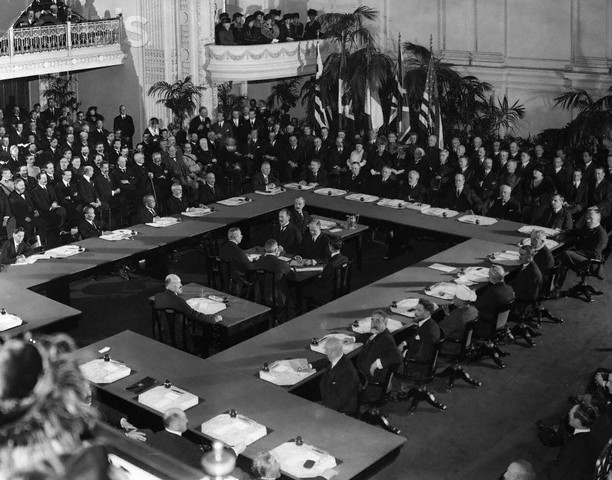We all know that Bernard Shaw was, if not dowright pacifist, at least someone who would apply "common sense" to war. His opinions, however, would normally be quite ahead of his time, to the extent that - most other people lagging behind his foresight - he would seeminly contradict himself and "stand on his head."
This is basically the origin of today's quotation. After the end of WWI, when everybody had become sick to their back teeth of bloodshed and warmongery, "disarmament" became a "popular cry" even in the United States. Shaw, paradoxically, followed the classical maxim of "si vis pacem para bellum" and claimed that "arming is one of the things you should do without saying anything about it." While following this train of thought, Shaw attacks those who cried "above all, more shells" while they thought that "war with Germany was unthinkable." Well,
"All wars are unthinkable; but they occur nevertheless."
These are the opening arguments of an article entitled "The Limitation Conference: After You, Sir," publised in The Nation and the Athenaeum (Nov. 19th, 1921). In it, Shaw discusses the opening sessions of the Washington Naval Conference in the wake of the Great War.
Shaw's conclusions are clear - and witty as ever:
"What is the moral of all this? Simply that the
disarmament items in the agenda of the conference do not matter a scrap. If the
Powers have any sense or any capacity for learning from experience they will
spare their taxpayers by disbanding their armies; countermanding their orders
for battle ships and singing peace on earth and good will toward men at the top
of their voices. Their submarines and airships will all be commercial ones;
their explosive factories will merely be dye works; their gas plants will
supply chemicals for ordinary Industrial purposes; their working drawings of
the latest magazine rifle will hide securely in a pigeon-hole. And the next war
will be just as likely to occur and be much the same when it does occur as if
the Powers, were visibly armed to the teeth."
The full text of the article is available via the Proquest Periodicals Archive Online Database, or freely available as a computer-generated text (some typos, of course) of a summary in the Cincinnati Enquirer, HERE.

No comments:
Post a Comment